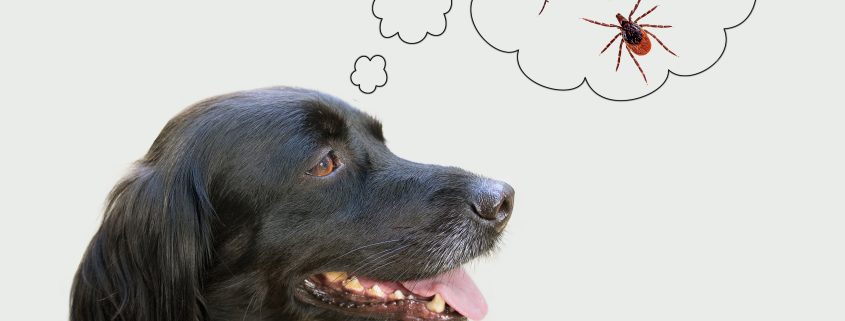Although tiny in size, fleas are a big problem for both pets and their people. Flea bites make us and our furry friends itchy and miserable, and some fleas carry pathogens that can cause human disease. To make matters worse, once your home is infested, fleas are extremely hard to kill.
So why are these little pests so resilient? Here are the top three factors at play:
1. Fleas Reproduce Rapidly
The reproductive cycle of a flea is only 2-3 short weeks, which means they multiply rapidly. And a flea’s lifespan can be six months or more, causing a long-lasting problem.
When an adult female flea lands on a pet and starts feeding on its blood, that one female can lay as many as 50 eggs per day. She can continuously breed and stay on a single pet for several months, causing a serious infestation to develop very quickly.
Once flea eggs are laid, they fall off the pet and develop into adults in the surrounding environment. Eggs will make themselves at home in carpeting, wall cracks, along baseboards and in all those hard-to-reach places in your home.
Within 7-10 days, the eggs hatch into larvae, which then feed on organic material around them before developing into pupae. Once the pupae lifestage has begun, they wrap themselves into sticky cocoons to continue developing into adults.
The adults don’t immediately emerge from their protective cocoons. Instead, they might stay wrapped up for another few months until another unsuspecting host walks by, which is why flea infestations can still occur in the dead of winter.
2. Eliminating Fleas Takes Patience and Know-How
Because fleas can hide anywhere, you must be sure to treat each area listed below simultaneously. Without doing so, you could prolong your infestation and your hard work could be for nothing!
Treat Your Pets
The bad news is that if you have a pet, flea problems aren’t concentrated in just one room of your home. Pets roam your home and distribute fleas and their eggs throughout. Because of this, pets and their belongings must be treated at the same time as you treat the rest of your home and yard. To kill any adult fleas hiding in your pet’s coat, give them a bath using a pet shampoo formulated to kill fleas. While in the bath, be sure to comb out any stragglers using a fine toothed metal flea comb. In addition, wash your pet’s bedding, blankets, and plush toys in hot water and dry on high heat.
Treat Your Home
Vacuuming your home is critical to remove not only adult fleas, but eggs and larvae too. Vacuum the entire house once or twice a week. Move furniture to vacuum underneath, turn cushions over to vacuum both sides, and vacuum curtains that come in contact with the carpet or floor.
Be extremely diligent in rooms where your pet spends the most time. Also, for larger infestations, you may want to use a pesticide to kill any adults, eggs or larvae that escaped the vacuum. And speaking of escaping, empty your vacuum bag outside so no surviving fleas escape back into your home.
Treat Your Lawn
Don’t forget to include your lawn when you tackle a flea infestation. Pets and humans can carry fleas in from the outside, so lawn treatments will have to be done to get rid of the fleas living in your lawn. Using a treatment formulated to kill fleas outdoors, apply the yard treatment monthly until a hard freeze to ensure you’re killing all stages of remaining pests.
3. Be Vigilant
You’ve treated your pet, your home, and your yard. You might feel like breathing a sigh of relief, but now is not the time to let your guard down. Just because you don’t see adult fleas does not mean your problem is solved. It’s important to remember that once in the cocoon stage, pupae can survive for 12 weeks or longer. Even if you manage to eliminate the adults, eggs, and larvae, nothing will disturb the pupae in their cocoons. You need to treat your pet for long enough for all the existing pupae in your house to hatch into adults so the treatments can do their job. If you accidentally break your pet’s treatment program at any point, the pupae can hatch, feed, and start laying eggs again. This will undo all your hard work and start your infestation all over again.
Your Pets are our Priority!
At the National Animal Supplement Council (NASC), our number one priority is to promote the health and wellbeing of your pets. That is why we created the NASC Audit Program and the Quality Seal, which helps you identify animal health and nutritional supplements that come from responsible suppliers committed to producing the highest quality, most consistent products available. Visit our website to learn more and to see a list of NASC members that have earned the Quality Seal.


